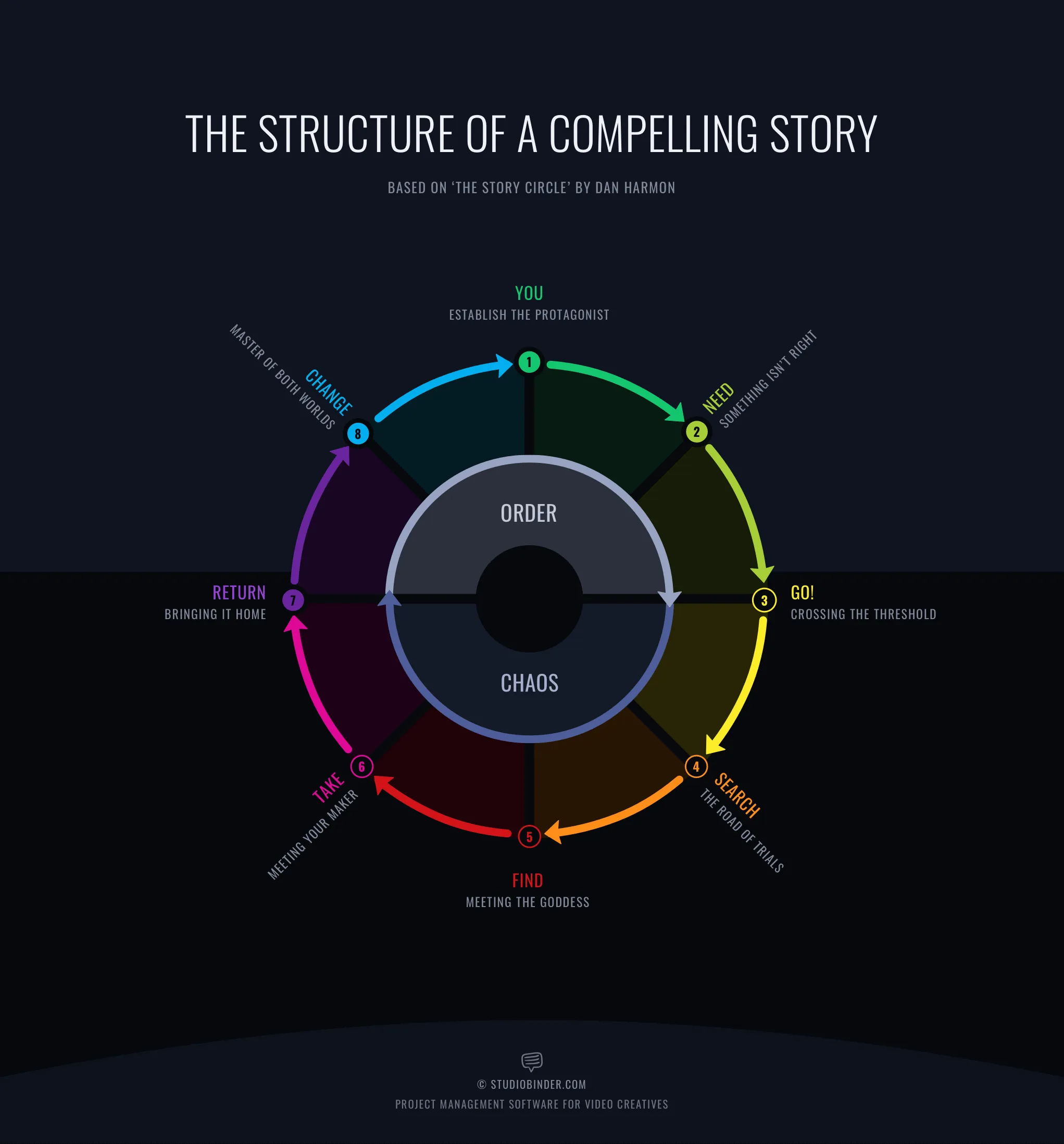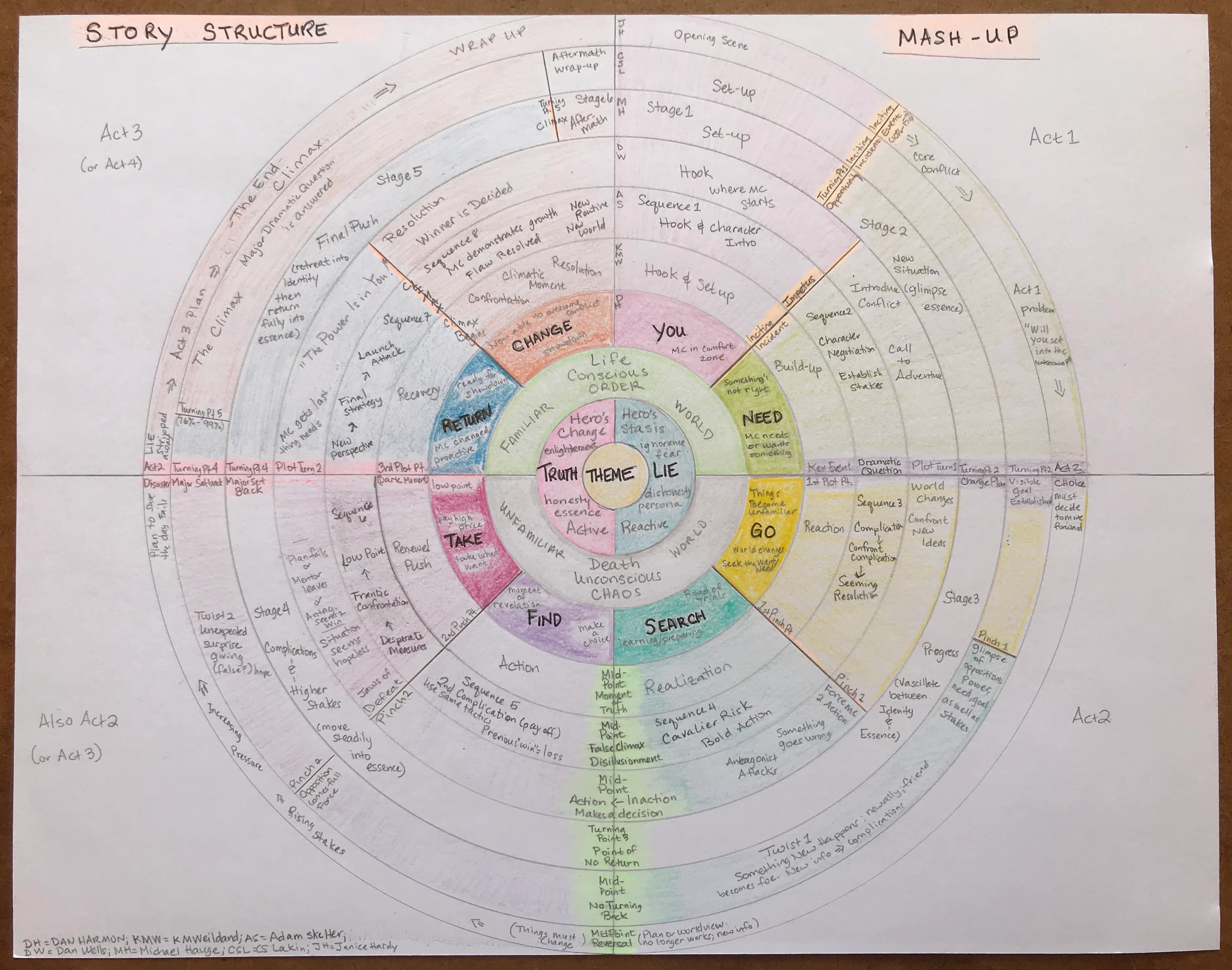Based on Dan Harmon's Story Circle - An Outline

You: The essence of the “You” step is to establish the protagonist of the story. It doesn’t always need to be a single person. It could be a family or a team. This is our introduction to our main character(s), an opportunity to see them before the story truly begins.
Need: Once we’ve been introduced to the protagonist and their world, the next step is to figure out what they “need.” Something happens to our character that presents a problem or a question. This is when the story starts to take shape — if “You” is the who of the story, “Need” is the what. This is where we learn the main goal of the protagonist, the pursuit of which will guide the rest of the story.
Go: Needs drive us into action. The “Go” step marks the protagonist’s first steps across the threshold in pursuit of the need. This is why you always hear “we need an active protagonist.” If there is a “Need” but not a “Go,” the story ends. When writing your own script, make your need so vital that it’s impossible not to go. Crossing this 3rd step is also when the protagonist enters the bottom half of the Story Circle. Leaving their normal world behind and officially entering the unknown.
Search: Search is where things begin getting more complicated. Both concerning the story you are telling AND in terms of the process. The character can address the need by searching for an answer. Great stories don’t always do this so literally. For Harmon’s Story Circle, it works to keep it active and straightforward. In a big epic feature film drama or a novel, the “search” is going to require more than a physical search. That means it’s a series of obstacles the hero must overcome. It’s where the rubber meets the road regarding that need.
Find: Eureka! The hero has searched and searched, and now he’s found the Need that sent them on this journey. But is the story over? Nope. Because in a good story, the hero doesn’t find what he needs. He might have found what he wanted, but it turns out he needs something else. Something bigger. This is where plot and character development often collide.
Take: Take whatever you found! And escape with it! Campbell might call this part of the story circle the magic flight. Even though the hero successfully acquires their Need, it comes at a price. Even after their initial success, the protagonist(s) suffer heavily losses. Depending on the genre, these “losses” could be anything from a temporary setback to the death of a major character.
Return: The return stage is coming into the home stretch. The character has brought back into the normal realm whatever they found and took. Be it a magical item, a person, a lesson… and as a result of this they… change.
Change: The change could be a personal one; it can be change to the world around them. In the instance of a movie or long story, it would be both. Sometimes the change has opposite effects too. The world has changed for the better, but maybe the protagonist has changed for the worst. Playing with the change step can be interesting.
An Example:

What are your feelings about this shorter outline? Do you like outlines that are longer? Drop me a comment down below.



